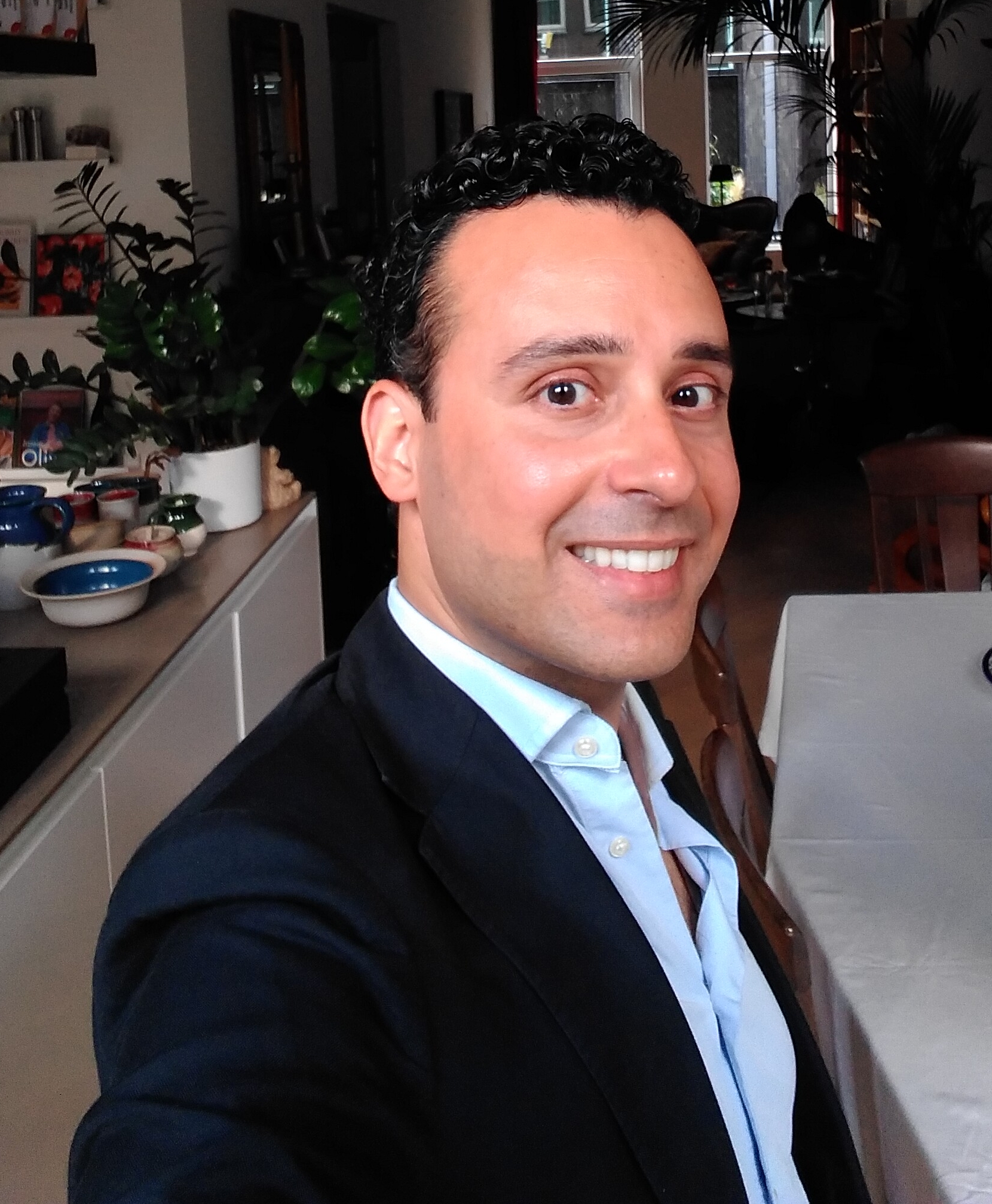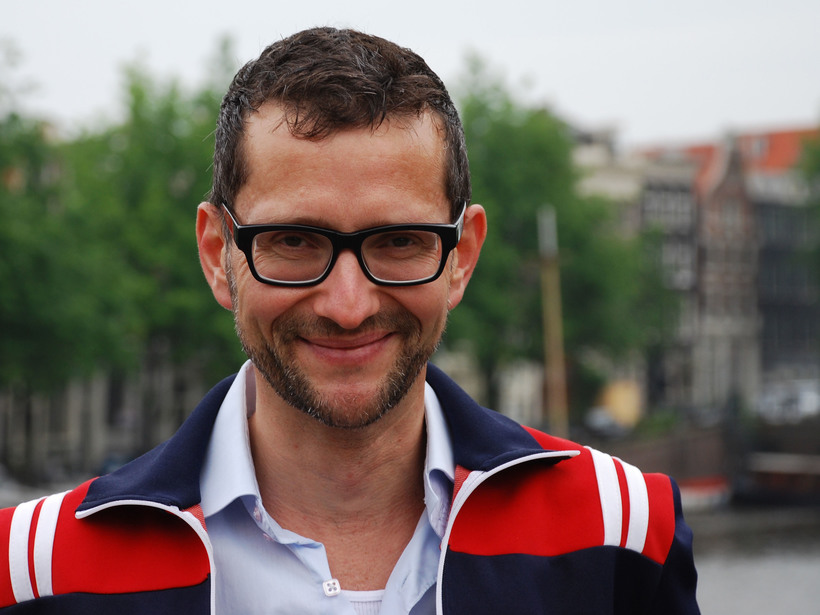The Netherlands has since long been a forerunner in the area of LGBT+ rights. In 1912, Jacob Schorer laid the foundation of the country’s liberal views on sexual orientation and gender identity. 65 years later, the Dutch organised the first international liberation and solidarity day, in response to anti-gay activist, Anita Bryant. In 2001 the Netherlands became the world’s first country to legalize same-sex marriage. Similarly, the Dutch capital city of Amsterdam is widely considered as one of the friendliest LGBT+ cities in the world, among other things for hosting the acclaimed Amsterdam Pride. What is the city’s current position when it comes to LGBT+ rights? The following is an interview with Peter de Ruijter, chairman of COC Amsterdam, one of 20 Dutch LGBT+ regional associations, which together constitute the federation COC Netherlands. COC Amsterdam and COC Netherlands are two of the oldest still existing LGBT+ equality movements in the world. 2016 marked their 70th anniversary.
TG: After being on the board of COC Amsterdam for 4 years, you were recently reappointed. What has been some of your spearheads in these years?
“I saw, and see a major opportunity to re-energise COC Amsterdam as being the bottom-up movement that it fundamentally is. As a democratic association consisting of members and volunteers, COC Amsterdam is highly relevant in today’s polarised public debate and decentralised public services. For the LGBT+ community, it is more important than ever to be visible, approachable, in touch and collaborating with several types of people, groups and organisations in Amsterdam and surrounding cities. Our aim is to support LGBT+ individuals and create an inclusive society for this group in the streets, at school, at work, in sport and in worship. As volunteers we work on these shared goals from a sense of personal motivation and shared responsibility – this provides our movement with authenticity and credibility. The latter are very topical issues, also in contemporary Dutch society.
The ‘getting involved message’ resonates with the LGBT+ community and our straight allies. COC Amsterdam is the outcome of all our combined efforts, and as a result, we have seen a doubling of the number of activities and a steady increase in the number of people applying to get involved. In addition, our volunteers’ professional background has shifted significantly. We currently have, for example, a team of researchers, communication experts, journalists, office managers and medical professionals contributing as volunteers whilst sharing our goals. At present, we have about 170 volunteers that shape COC Amsterdam as a movement”.
TG: Based on the outcome of the latest research of the AmsterdamPinkPanel, you indicated earlier this year that there is still substantial work ahead when it comes to LGBT+ security. What did you mean in saying this?
“At the moment, approximately 600 respondents take part in this yearly research. Notwithstanding the limitations of every investigation, this years’ respondent group indicate that they feel safe in the city (8 out of 10 score). Nevertheless, when an incident takes place, it can have a major impact on a person’s life. 25% of the participants indicate to have experienced an unsafe situation in 2015. This might range from name-calling to physical assault and everything in between.
Transgender people feel somewhat less safe (7 out of 10 score). COC Amsterdam has requested the police and city council to pay special attention to people who do not conform to mainstream gender typologies – besides transgender people, this may be the case for effeminate men, masculine women or transvestites. In addition to all of this, there is also a lot of room for improvement when it comes to the number of people that report an incident to the police – currently, only 10% of all respective incidents are reported”.
TG: COC Netherlands is one of the few organisations in its kind having consultative status with the United Nations. The latter has recently appointed -for the first time in history- a human rights expert on the protection of LGBT+ people. In concrete terms, what does this mean for a city like Amsterdam?
“One of the 5 key goals that Mr Vitit Muntarbhorn will be addressing on behalf of the UN is cultural inclusion. This is also a concern that is seriously examined by us in Amsterdam. We try to curb the ‘us-versus-them’ mindset through meaningful dialogue with spiritual leaders of the city’s 3 principal religious groups – that is: Christianity, Judaism and Islam. Together we emphasise the right of each person to be whomever they want to be regardless of their cultural background, sexual orientation, gender identity or religion.
When called upon, we assume a more visible role, like for example our countermovement in regard to the recent gay-bashing of two men in Amsterdam. In response to the anti-gay flyers that were distributed in the city, we launched the #020diversity campaign. In the words of UN’s Secretary-General, Ban Ki-moon: ‘Respect for religion, culture and tradition cannot justify the denial of basic rights to anyone, including LGBT+ people’.”
TG: 10 years ago, research indicated that Amsterdam had allegedly lost its LGBT+ leading position, primarily because over the years innovations in the recreational scene were not materialised. What’s the present state of affairs?
“While it’s true that LGBT+ recreation in Amsterdam has evolved and does not limit itself to specific locations any longer, several good venues have lifted off in recent years. On a personal note, I like the recent developments with respect to the city’s queer-oriented parties, in addition to the several parties for muscle queens and fetish lovers. But more importantly, I believe that Amsterdam possesses a visible, supportive and diverse LGBT+ community which makes it a welcoming city”.
TG: You are part of the oldest LGBT+ organisation still in existence. What legacy would you like to leave behind?
“In my role as chairman of COC Amsterdam, I’m a ‘connector’ and ‘builder’. When appointed, some of my straight friends teasingly referred to me as ‘chief-gay’ or ‘chief-activist’. I do not particularly identify myself with either qualification. I assume the role of activist when dialogue fails. There is, of course, no shortage of challenges, but through dialogue much can be achieved. While both angles have their own dynamics and strengths when applied wisely, I personally believe that dialogue connects whereas activism tends to polarise. My key principle is to always look for common denominators and for that which binds us as humans”.
Originally published at www.huffingtonpost.com


